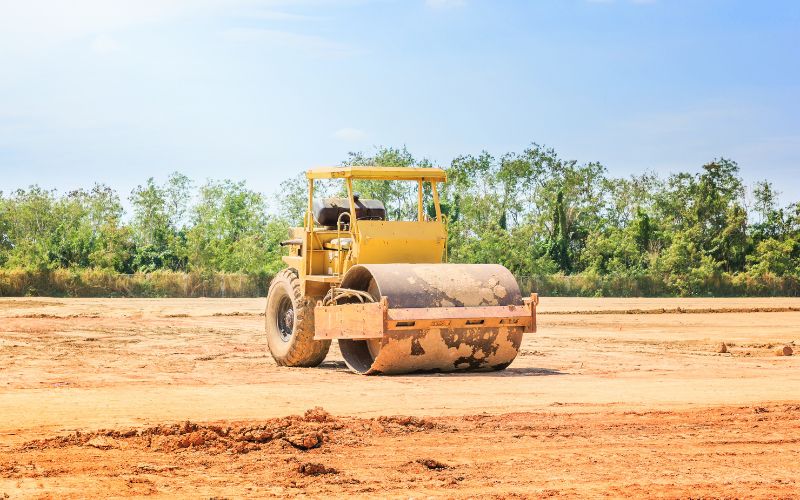Types of Rollers Used In Construction
Compaction rollers are an essential component of any large construction job site. They are required to take uneven surfaces and convert them into flat, smooth beds of material just by rolling overtop of them and pushing and compacting them.
There are a few different types of rollers. Each one is the perfect match for specific construction work. Here is a closer look at what they are:
Cylindrical Roller
This is considered a traditional type of roller. It is often made from concrete, stone, iron, or some other heavy material and was the common choice for evening out rough terrain for centuries. As this is a lightweight roller compared to the others, it could be pulled manually or by oxen or horses. The size of a cylindrical roller varies from 1 metre in diameter to about 1.5 metres in length. Regardless of size, this type of roller still generates roughly 7kg/cm2 of ground pressure.
Grid Roller
A grid roller gets its name from the visual look of the roller. It has a heavy steel surface made from a network of steel bars. The steel bars are arranged in such a manner that they form a grid with square holes. This type of roller normally has concrete blocks inside of it to give it additional weight. A grid roller is often pulled behind another vehicle which allows for high contact pressure. However, kneading action is reduced because it is towed rather than pushed.
Pneumatic Tyred Roller
This type of roller, which is sometimes called a rubber-turned roller, has a wagon that is heavy and sits on several rows of closely-spaced tyres. The tyre configuration offers even pressure on the surface area it covers. However, there are a few factors that impact the actual compaction amount this type of roller can achieve. The weight of the unit, the inflation pressure of the tyres, and the area of contact all play a role in the finished product.
Sheepsfoot Roller
This type of roller has a steel drum with several lugs sticking out of it in a grid pattern. The roller may be either static or vibrate and the weight of the drum can be increased with water or damp sand. Just like pneumatic tyred rollers, sheepsfoot rollers have several factors that can impact the amount of compaction they provide. They include the roller weight, the area of each of the protruding lugs, how many of the lugs are in contact with the surface being worked, and how many lugs are on the roller drum.
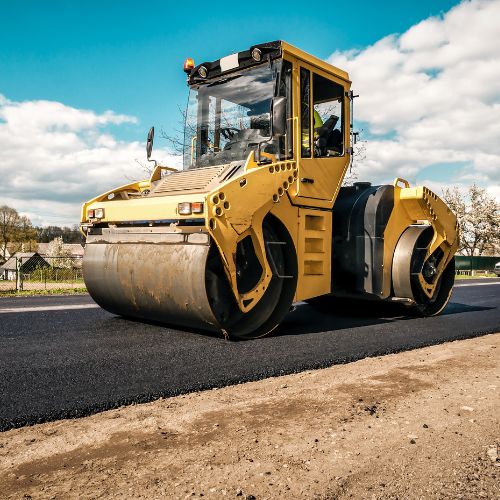
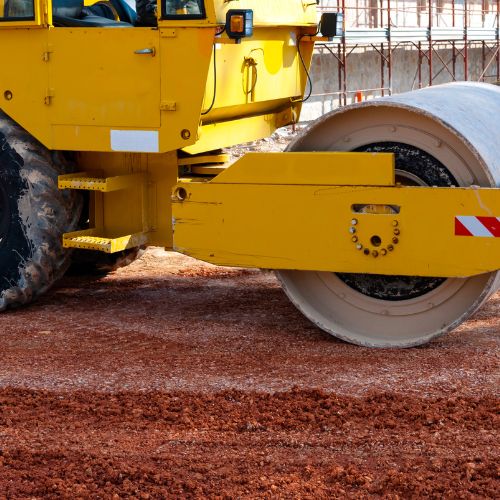
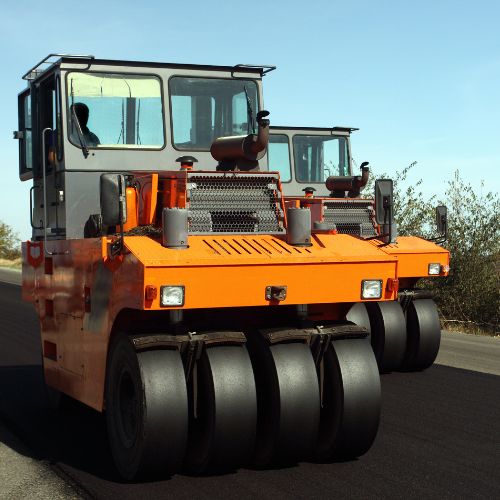
Smooth Wheeled Roller
This is a very heavy roller that has a large steel drum in front and one or two drums at the back. The configuration varies as the single drum is sometimes at the back of the roller and this type is known as a tandem roller. Tandem rollers weigh between 2 and 8 tons and three-wheeled rollers weigh anywhere from 8 to 10 tons. The performance of smooth wheeled rollers is dependent on the load per centimetre and tandem rollers usually provide between 10 and 17kg/cm2.
Vibratory Roller
The name of this type of roller explains part of the way this unit operates. It has one or two smooth surfaced drums of steel. They usually measure between 0.9 and 1.5 metres in diameter and between 1.2 and 1.8 metres in width. The drums have an eccentric shift inside that makes them vibrate as they rotate across the surface of the ground. A vibratory roller has a greater output than the other roller types and outperforms them as well. However, this type of roller is also the most expensive of the options available.
Need A Road Roller For Civil Works? Contact E4H Today
If you have a major project underway and need a roller, E4H has them for hire. To find out more, contact E4H today. They also have water tippers and excavators for hire to be used in landscaping and watering system projects. Call them today to discuss your needs.
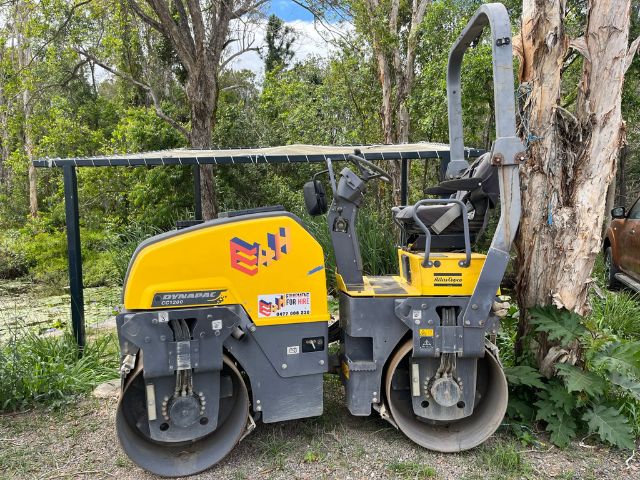
Conclusion
Heavy construction projects require heavy equipment. One piece that is vital to any job site is the roller. There are different types for different jobs. Regardless of which type of roller you need, you need a roller to turn uneven ground into a smooth surface. Fortunately, these pieces of equipment are available for hire. Just contact E4H today to discuss what your project requires.

